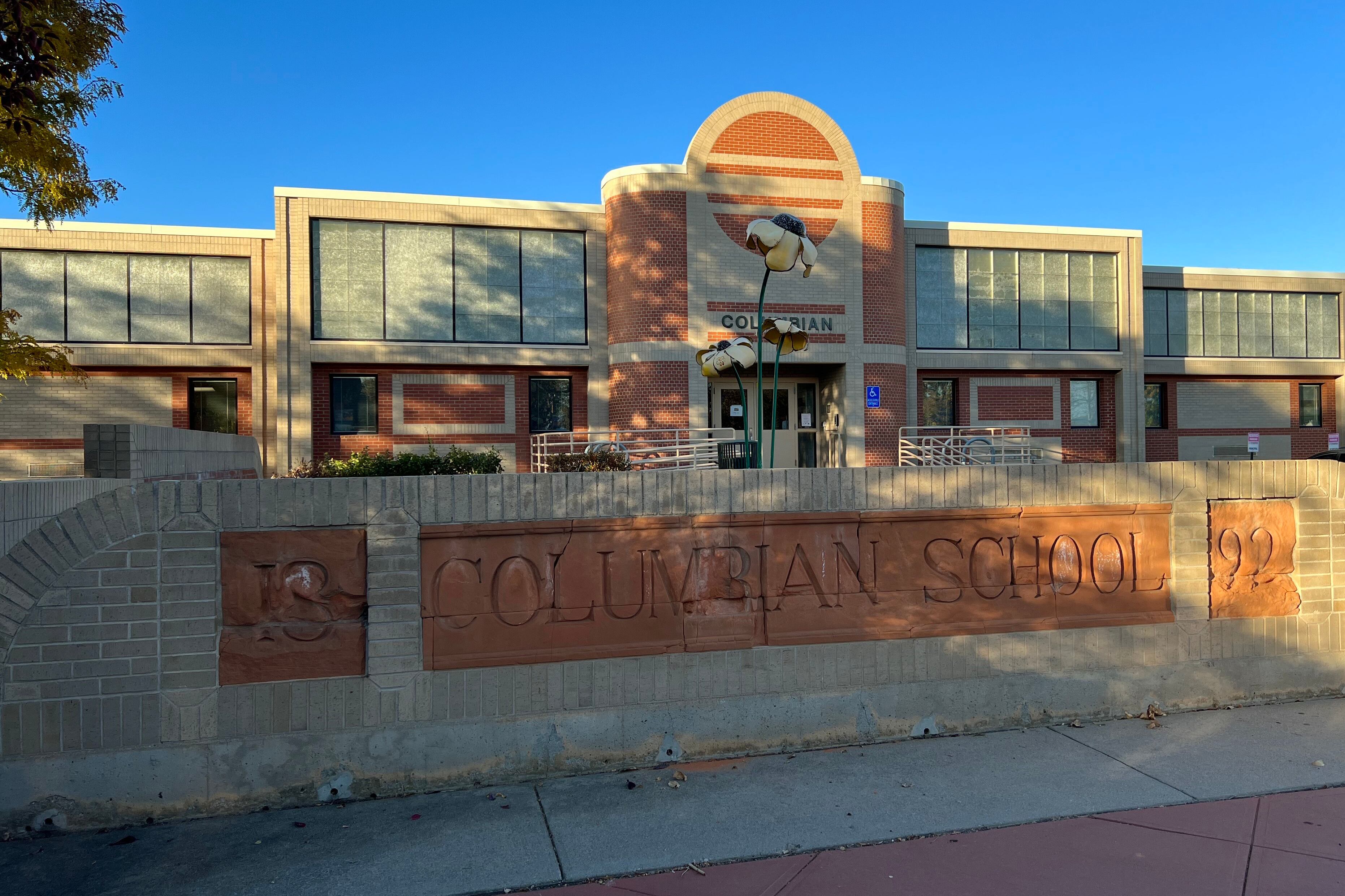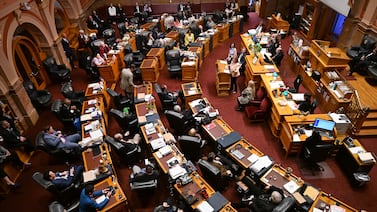Sign up for Chalkbeat Colorado’s free daily newsletter to get the latest reporting from us, plus curated news from other Colorado outlets, delivered to your inbox.
The Denver school board is considering pausing any future school closures until closures that are underway are executed and plans for vacant buildings are finalized.
The proposal comes three months after the board voted in November to close or partially close 10 schools with low enrollment at the end of this school year. More than a year and a half earlier, the board voted to close three small schools in the spring of 2023.
The proposal doesn’t include a timeframe for a moratorium on school closures, though several board members floated the idea of two or three years during a meeting Thursday.
“We consistently heard from community, ‘This is too much. We need to catch our breath. Every year you’re talking about closing schools and there’s this list and there’s a lot of anxiety,’” said board member Michelle Quattlebaum, who proposed the pause.
The board has not set a date to vote on the proposal, which would amend the board’s school closure policy. Board President Carrie Olson said she would add it to the Feb. 20 meeting agenda for a first reading. The amendment must have a first reading and a second reading before the board can vote.
The school closure policy, known as Executive Limitation 18, requires the superintendent to present a proposed timeline each August for school closures for the following school year. The policy says the superintendent will make a recommendation to close or consolidate specific schools each November and the board will vote that same month.
The proposed amendment says the superintendent “shall not present any new recommendations until the approved recommendation has been executed.” It includes a caveat that says the superintendent can recommend a closure “if there is a significant change in enrollment, a significant change in funding, or an unforeseen emergency.”
Superintendent Alex Marrero told the board that it would realistically take a minimum of two years to execute a school closure, including finalizing plans for the future use of the building. The district is just starting that process for the schools set to close this spring.
Quattlebaum said educators and families have told the board that they anxiously await anytime the superintendent releases a list of schools at risk for closure. The proposed pause is meant to add “some normalcy to this process, some consistency, and some relief,” she said.
“What we do not want to happen is we don’t want our teachers, our educators leaving schools for fear that they may end up on a list,” Quattlebaum said. “Because when our staff leaves, the quality of education goes down.”
Neighboring Jeffco Public Schools enacted a similar school closure moratorium a few years ago that has now expired. Jeffco has closed 21 schools since 2021 due to declining enrollment and is now considering closing or redesigning another.
Melanie Asmar is the bureau chief for Chalkbeat Colorado. Contact Melanie at masmar@chalkbeat.org.







